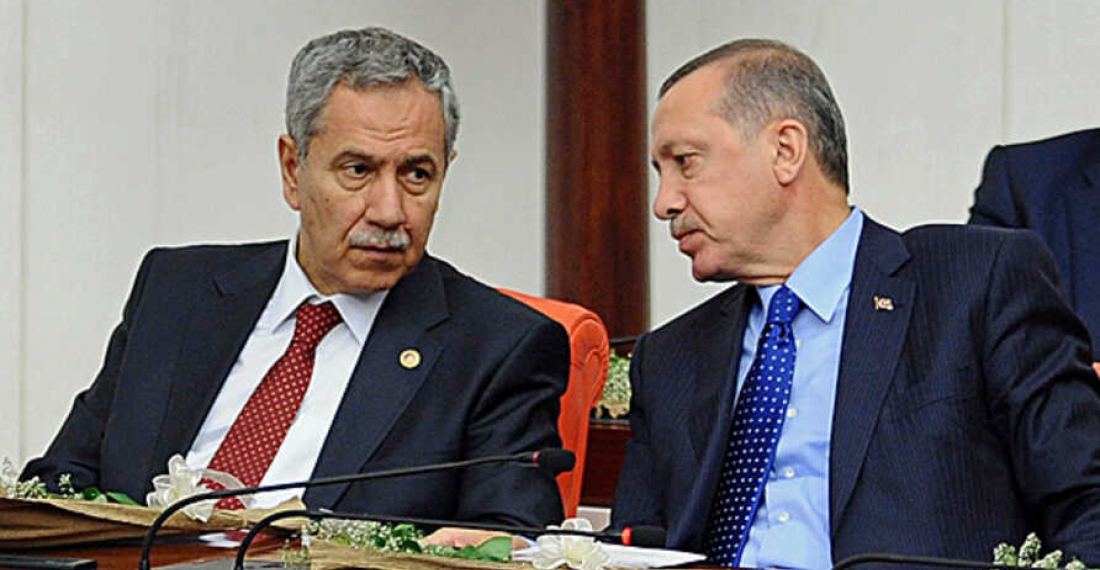One of the original grandees of Turkey's ruling AK party has resigned his last official post as a member of the presidential advisory council.
Bulent Arinc accompanied Turkish president Recip Tayip Erdogan in some of the most difficult moments of his political journey to the presidency, serving as Speaker of the Turkish Parliament from 2002 - 2009, and later as deputy prime minister from 2009-2015.
Like Erdogan, Arinc holds conservative social views, and has often been criticised for his position on women's rights.
In recent days Arinc, speaking during a TV interview, appeared to be advocating the release from prison of Kurdish political leader Selahattin Demirtas who is accused of supporting Kurdish PKK terrorist activity, and businessman phillantropist Osman Kavala who is accused of being involved in a coup attempt in 2016
Arinc announced his resignation in a post on his twitter account, saying he felt the need to explain his remarks on legal reforms made on a TV broadcast that caused major controversy.
Arinc said he commented on the legal reforms as a lawyer himself, adding that he was "sorry" to see his opinions on universal law, justice and jurisdiction overshadowed by the mentioning of certain names. He was referring to Osman Kavala, a prominent Turkish tycoon, and Selahattin Demirtas, former head of the pro-PKK Peoples' Democracy Party (HDP), both of whom are in prison on terrorism charges.
Arinc said that he was misunderstood and rejects that he compared himself to the terrorists.
Arinc also pointed out that during the broadcast, he had underlined that he was speaking as a former parliamentary speaker, not as a member of the presidential advisory board (YIK).
He continued by expressing that it is "clear" that Turkey's judicial system and economy need reform, and he supported President Recep Tayyip Erdogan's vision for the future and the intended steps to get there.
"However, since I am worried that my speech was misinterpreted by some and this might negatively impact the ongoing reform work, I decided that it would be more proper for me to resign from my position as a YIK member," Arınç emphasized.
Arinc's remarks in support of the release of Demirtas and Kavala stirred controversy in Turkish politics in the last days.
On Sunday, Erdogan, without mentioning Arinc's name, expressed that personal statements cannot be seen as equal to the party's stance, and added that he cannot accept the favoring of terrorists under any circumstances.
"We cannot be side by side with people like Kavala. We cannot be side by side with the killers of our Kurdish brothers," Erdogan said, referring to the PKK.
Kavala was first arrested on criminal charges related to the 2013 Gezi Park riots which evolved from a minor protest against the redevelopment of a park in central Istanbul. He was acquitted in a February hearing but arrested again upon the request of the prosecutor’s office for his alleged role in the 2016 coup attempt.
Demirtas, on the other hand, has been in jail since 2016 on terrorism-related charges. He faces a sentence of up to 142 years in jail if found guilty in the main case against him.
Arinc is the latest of grandees of the AK Party to break ranks with Erdogan. Former president Abdullah Gul and former foreign minister Davitoglu are among a string of other personalities that have in recent times distanced themselves from Erdogan.
Erdogan himself however has strong grass root support, which he has been able to translate in electoral victories in recent years.
source: commonspace.eu with Daily Sabah (Ankara) and agencies
photo: president Erdogan and Bulent Arinc in better times (archive picture)







